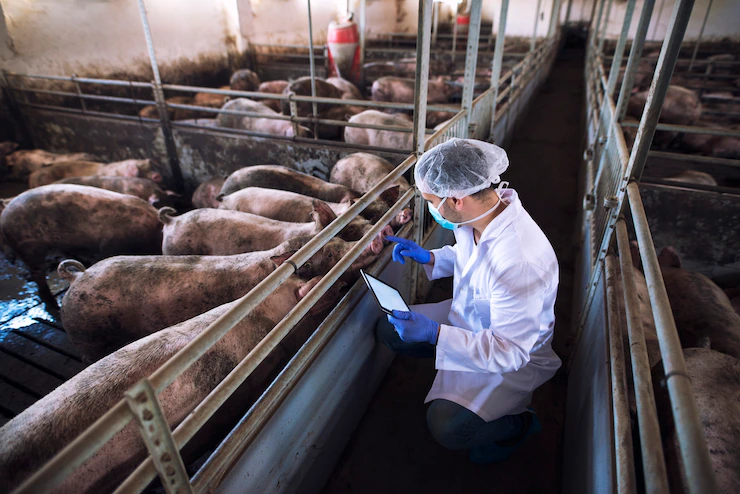To navigate the organic certification process for livestock farming in South Africa, there are several steps you need to follow. While I can provide you with general information, please note that specific details and requirements may vary, so it’s important to consult the relevant authorities and certification bodies in South Africa for the most up-to-date and accurate information. Here’s a general overview of the process:
- Understand the Standards and Regulations: Familiarize yourself with the standards and regulations governing organic livestock farming in South Africa. The primary authority responsible for organic certification in the country is the South African Organic Sector Organization (SAOSO). They develop and enforce organic standards in compliance with international guidelines.
- Conversion Period: Determine the conversion period required for your livestock farm. Typically, there is a period of at least three years during which your farm must operate using organic practices before you can obtain full organic certification. This period allows for the transition from conventional to organic farming methods.
- Farm Planning and Record-Keeping: Develop an organic farm plan that outlines your farming practices, including feed sources, livestock management, health protocols, and record-keeping procedures. Detailed records are essential for certification and should demonstrate compliance with organic standards.
- Organic Inputs and Practices: Identify and implement organic practices and inputs for your livestock farm. This includes using organic feed, ensuring proper animal welfare, implementing pest and disease control methods compatible with organic farming, and avoiding the use of synthetic chemicals, antibiotics, and growth hormones.
- Soil and Pasture Management: Focus on soil health and pasture management. Organic livestock farming places emphasis on maintaining fertile soils through practices such as crop rotation, composting, and organic fertilization. Implementing grazing management systems that promote biodiversity and prevent overgrazing is also important.
- Certification Application: Contact a reputable organic certification body accredited by SAOSO and submit your application for organic certification. The certification body will review your application, inspect your farm, and assess your compliance with organic standards. They may also conduct periodic inspections and require regular record submissions.
- Certification Audit and Compliance: Prepare for an initial certification audit. The certification body will assess your farm’s compliance with organic standards, review your records, and inspect your livestock, infrastructure, and practices. If any non-compliance issues are identified, you will be given an opportunity to rectify them.
- Certification Issuance: If your farm meets the organic standards and requirements, the certification body will issue an organic certificate. This certificate confirms that your livestock farm is certified organic and allows you to market your products as such.
- Annual Renewal: Organic certification is typically valid for one year. To maintain your certification, you’ll need to undergo annual renewal audits to demonstrate ongoing compliance with organic standards and submit the necessary paperwork and fees.
Remember, it’s crucial to stay updated with the specific regulations and requirements set by the South African authorities and certification bodies. Contacting SAOSO or an accredited organic certification body will provide you with detailed guidelines and support throughout the certification process.
Join 'Farmers Mag' WhatsApp Channel
Get the latest Farming news and tips delivered straight to your WhatsApp
CLICK HERE TO JOIN






